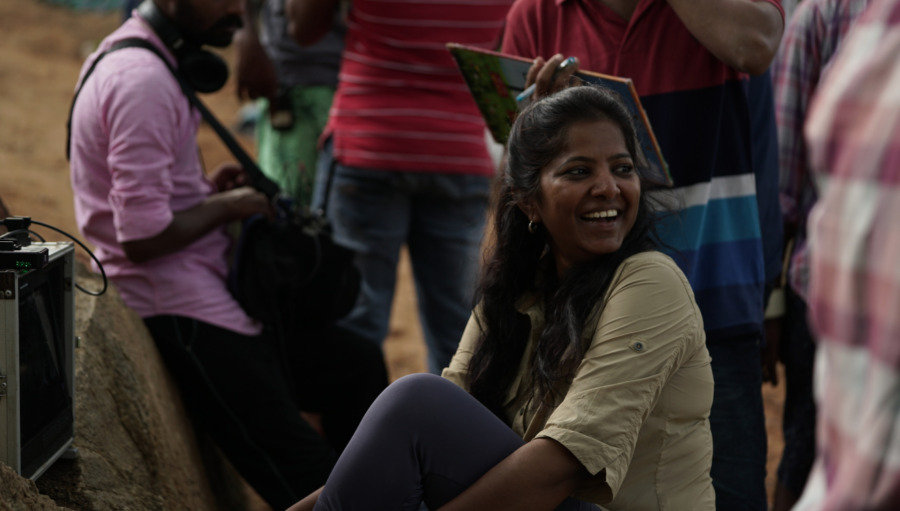Alia Bhatt was recently asked about casting couch. Her answer?: “All of a sudden the casting couch discussion has become a burning topic. However, I am of the opinion whenever such topics are discussed, the environment turns very negative. People start believing that the industry is bad.”
A D V E R T I S E M E N T
She followed this with an advice: “They should always believe in themselves. However, if at all they are confronted with this bad moment (casting couch), they need to immediately inform their parents. And, thereafter go to the police.”
At the teaser launch of Sanju, Ranbir Kapoor was asked the same question and this was his reply: “I have never faced the casting couch. If it’s there, then it’s the worst thing.”
Ever since the infamous ‘Koffee with Karan’ episode where Kangana Ranaut called Karan Johar the “flag-bearer of nepotism”, Bollywood has been divided – one group defending it and the other sharing its own experiences. It’s easy to guess which side the star kids are on. But they have been facing questions on it.
Recently Kareena Kapoor said, “There are many superstars from yesteryears and not all of their children are superstars. If nepotism exists, everyone would have been superstars. But, the fact that today Ranveer Singh, (who) does not have mother or father who is a superstar, out of sheer talent and hard work he is where he is today. I don’t think nepotism exists.”
Whenever they have been asked questions about nepotism and casting couch, the defence of star kids has been that the problem is not exclusive to Bollywood, but common across industries. Fair enough. They also say that while family connections can give them the initial break, only sheer talent can help them survive the long haul.
In fact, the Kapoor family is an example of Bollywood royalty where the children have been offered films on a platter. Every new generation of the Kapoor clan has tried its luck in films. Some made a name for themselves, while the others faded into oblivion after a few duds. The point to be noted is that they got adequate chances even after failures. There are, however, star kids such as Alia Bhatt and Varun Dhawan who have proved that they might have been launched by Karan Johar thanks to their pedigree, but have the talent to impress the audience, whether it’s a masala entertainer or a content-driven film.
Bollywood royalty aside, when these questions on nepotism and casting couch are asked to other performers, the answers are widely different.
Radhika Apte and Marathi actress Usha Jadhav, in a recent
BBC documentary, talked about Bollywood’s casting couch, where actresses are given roles in movies in exchange for sexual favours.
“If someone speaks out, everybody trashes the girl and say that the girl is publicity hungry, she has no talent and probably has nothing to do,” said an actress whose identity isn’t revealed, when asked why she cannot go public with her experience.
“Some people are regarded as Gods. They are so powerful that people just don’t think that my voice is going to matter, or people think that if I speak, probably my career is going to get ruined,” said Apte.
In an interview Swara Bhaskar had shared a harrowing experience in the initial days of her career when a film director started harassing her. “He stalked me during the day and called me through the night. I was asked to go to his hotel room on the pretext of discussing the scene and would find him drinking. During the first week itself, he started talking about love and sex and one night, arrived in my room, drunk, and asked to be hugged. It was scary… I was young and alone. I would switch off the lights after pack-up and remove my make up in the dark so he would think I was asleep and stop calling me,”
she said.
Rajkummar Rao has always been candid on the topic of
nepotism, “Favouritism is there, of course. It is present everywhere, so it is fine. But, my only concern is when because of favouritism I have to see non-talented people in films. That is a problem for me.”
While the answers are starkly different, whether it’s a trailer launch or any film event, the likes of Sonam Kapoor, Ranbir Kapoor, Kareena Kapoor, Varun Dhawan will continue to be asked questions on casting couch and nepotism, in the hope of getting a salacious quote. Here’s why their answers are not helpful to the cause.
Firstly, they all hail from film families and did not go through the same struggles as that of an outsider. What can they possibly say about the casting couch when they had a plethora of opportunities lined up even before they made their debut? They didn’t have to ward off unwanted attention, and they didn’t have to fight sexually predatory behaviour. They didn’t have to take up smaller roles, perform on stage and give audition after audition, all in the hope of signing a film.
After the Harvey Weinstein scandal, while prominent faces in Hollywood spoke against sexual harassment at the workplace, the same kind of revolution is yet to happen in India. The questions have largely remained limited to individual experiences. Actors such as Ayushmann Khurrana, Ranveer Singh and Tisca Chopra have spoken about theirs, and these voices are important, coming as they do from outsiders who struck gold in the industry.
So, should star kids continue to be asked the same question? The answer is yes. They might not have faced these problems, but their support and eagerness to address the problem goes a long way in instilling confidence in the countless of women and men who come to Bollywood harbouring their dreams. These star kids might not have faced the casting couch, but they sure can acknowledge and stand-up against the practice.
What the media needs to do now is amplify the voices of those who have shared their experiences. It is not easy to talk about sexual harassment in a country that regularly indulges in victim blaming. These star kids might have been unaware of Bollywood’s dark side, but they have the power to put a stop to it.
To the star kids: You may not have had unpleasant experiences but rising above banal advice is imperative.



